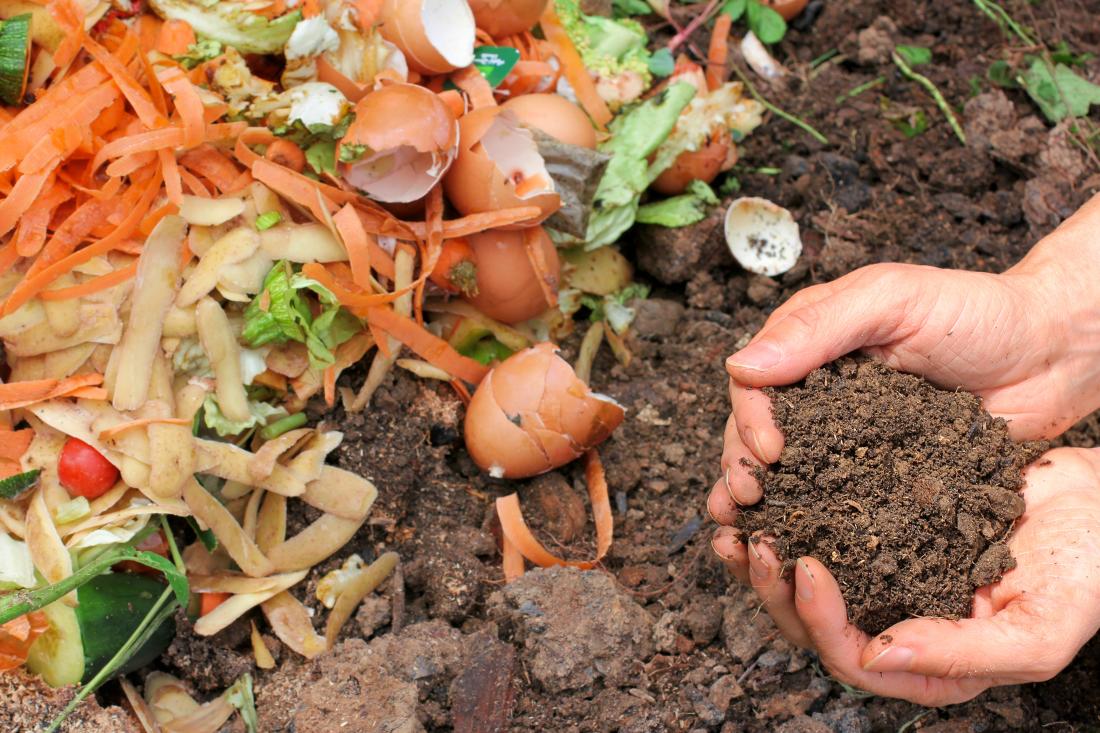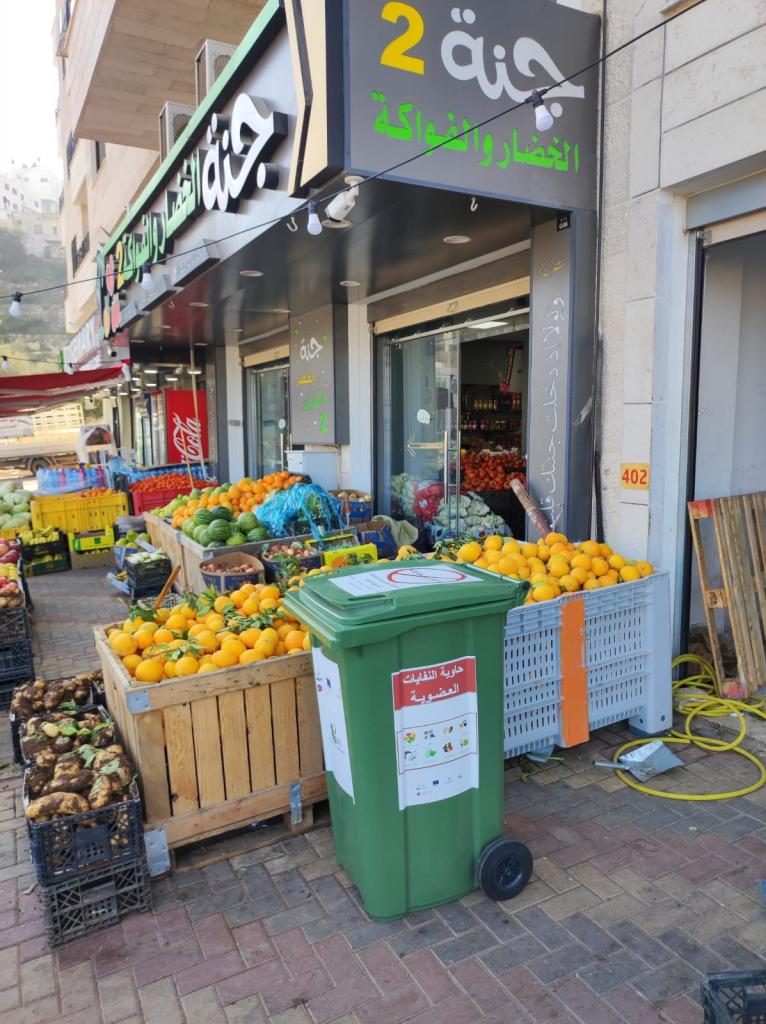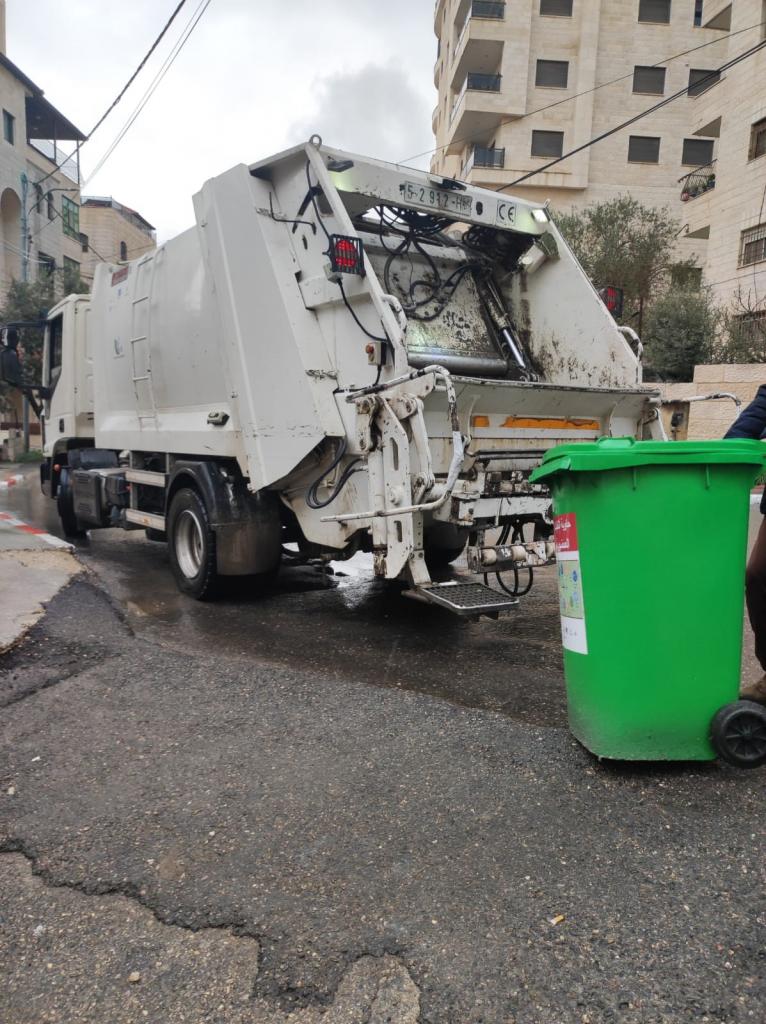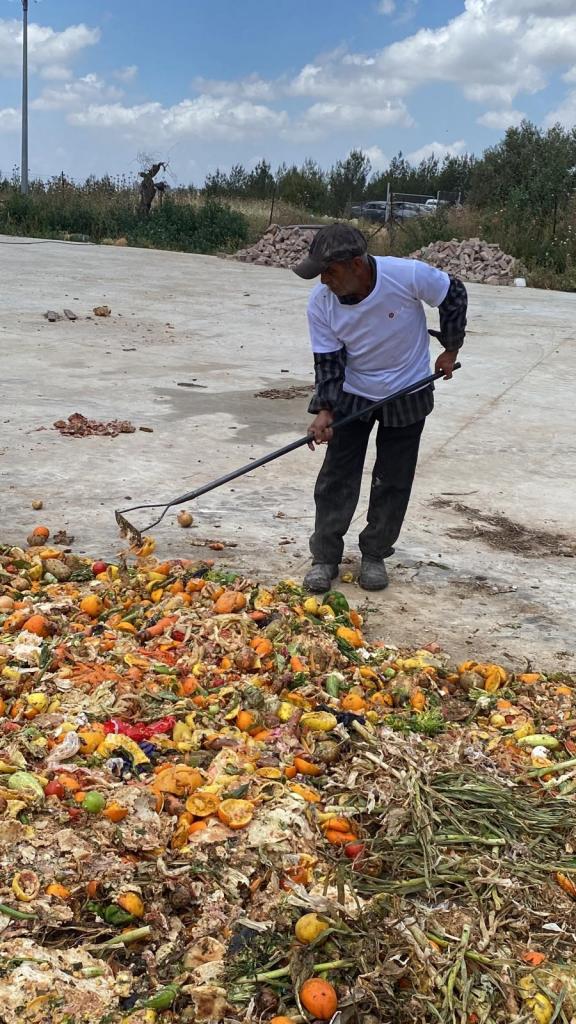SIRCLES in Palestine contributes to biowaste separation, composting and social inclusion

Every year, millions of tons of organic waste are generated globally, resulting in serious environmental concerns. However, the SIRCLES project, which aims to support circular economy opportunities for employment and social inclusion, is providing a sustainable solution to this problem, along with creating green job opportunities for women at risk of social exclusion and young people who are Not in Education, Employment, or Training (NEETs), through a circular economy business model applied to the biowaste management sector.
The House of Water and Environment (HWE), SIRCLES project’s partner in Palestine, has been efficiently implementing the pilot project activities in Ramallah city, including separating biowaste at the source in a number of restaurants, hotels, and vegetable markets, as well as operating the composting plant located in Beitello village where the separated biowaste is transferred to produce good quality compost. This article highlights the main activities and results of the SIRCLES pilot project implemented in Palestine.

After receiving comprehensive training in the field of biowaste management and composting, a total of 12 NEETs were hired in Ramallah's targeted restaurants and hotels as separation workers, while others were hired at the composting plant. In addition to their separation and composting duties, some of these NEETs are also tasked with providing awareness sessions and in-job training to their colleagues in separation and composting and also to the kitchens' staff of the targeted restaurants and hotels. These sessions are aimed at improving their skills and increasing their efficiency in their respective roles. Furthermore, this initiative plays a crucial role in producing good-quality compost with minimal impurities, which is essential for sustainable waste management.
Based on the quantification and analysis of the separated biowaste, it has been estimated that from February to April 2023, the accumulated biowaste generated amounted to approximately 40 tons, complemented by 28 tons of agricultural waste and about 7 tons of animal manure. However, the availability of green and shredded agricultural waste is one of the main challenges facing the composting plant. Fortunately, Ramallah Municipality, as an associated partner, has provided support in addressing this issue. Moreover, the composting system implemented in the plant involves the building of piles next to each other, with a height ranging from 1.8 to 2 meters.

Last but not least, it is also worth mentioning that the composting plant operations are being carried out in partnership with Ramallah Municipality and Beitello Village Council through forming synergies. By working together, these entities are ensuring the success of the pilot and contributing to the creation of a sustainable waste management system in the region.
In conclusion, the SIRCLES project is a prime example of how circular economy practices can provide sustainable solutions for environmental problems while creating green job opportunities for vulnerable groups. By effectively implementing biowaste separation at the source and operating a composting plant, SIRCLES has successfully diverted tons of organic waste from landfills to turn it into good-quality compost and, therefore, transfer waste into a resource. As the project continues to grow and expand, it is expected to have even greater positive impacts on the environment and the lives of its beneficiaries. As one of the hired NEETs, "Etaf," notes: "SIRCLES project has offered me an amazing experience that has equipped me with knowledge on utilizing biowaste to produce compost, while also providing me with income and enhancing the living conditions of my family."










